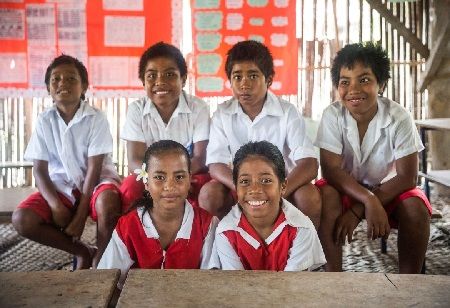- ADB approves $30 million grant for Kiribati’s Equitable Access to Quality Education Project, with an additional $5 million co-financing from the Global Partnership for Education.
- The project will build climate-resilient schools and gender-sensitive dormitories to ensure safe, continuous learning across Kiribati’s remote and climate-vulnerable islands.
- In partnership with Australia’s 10-year Kiribati–Australia Education Program, the initiative aims to boost digital learning, teacher training, and inclusive education for lasting educational transformation.
In a bold action to enhance education access and resilience in the Pacific, the Asian Development Bank (ADB) has approved a $30 million grant to support improving the quality and accessibility of primary and secondary education in Kiribati. The project, under the Equitable Access to Quality Education Project, aims to remove obstacles to learning, especially in the nation's far-flung outer islands, and provide every child irrespective of location or gender a safe, contemporary, and stimulating educational setting.
The project is further supported by an additional $5 million co-financing from the Global Partnership for Education (GPE) and is closely aligned with the Government of Australia’s 10-year Kiribati-Australia Education Program, amplifying international cooperation in advancing Kiribati’s education sector. At its core, the project will focus on developing modern, climate-resilient educational infrastructure, a necessity for Kiribati, one of the world’s most climate-vulnerable nations.
The building of new classrooms, dormitories, and recreational areas will be constructed to be resilient against weather hazards while being safe and accessible for learning. Gender-sensitive dormitories and better transport facilities will especially benefit students of geographically scattered islands, enabling them to access education without endangering their lives via long-distance travel. These initiatives are likely to make learning continuous despite environmental interruptions by rising sea levels and natural disasters.
Aaron Batten, Regional Director of ADB's Pacific Subregional Office, stressed that the project would deal directly with the impediments to many children in outer island communities from being able to finish school. He added that transport, infrastructure, e-learning, and teacher training improvements would motivate more students to remain in school and finish their studies.
Also Read: Asia's Top 5 Schools with the Most Competitive Admissions
Today, a great number of children in Kiribati drop out because of distances to schools, inadequate school facilities particularly for girls and limited access to trained teachers or digital learning resources. Through the closing of these gaps, the project hopes to improve enrollment, retention, and learning outcomes throughout the islands.
In addition to physical infrastructure, the program will transform the education system through curriculum improvement with the inclusion of digital technology and skills for the 21st century, while extensive teacher training programs will emphasize interactive pedagogy and inclusive classroom approaches. Improved education planning and monitoring systems will also support data-driven decision-making to enhance overall quality.
GPE CEO Laura Frigenti emphasized that fair education starts with secure, well-furnished schools, and through the partnership with ADB and the Australian government, the project will leverage international expertise and resources to create sustainable impact. The project supports Australia's long-term education plan in Kiribati, which has a focus on enhancing literacy, numeracy, and inclusive education practices.
Financed by ADB's Asian Development Fund, the project reflects ADB's overall commitment to helping the Pacific's poorest countries. Through investing in education, Kiribati is building the foundations of a strong and empowered next generation, able to sustainably drive growth and respond to the demands of the 21st century.

